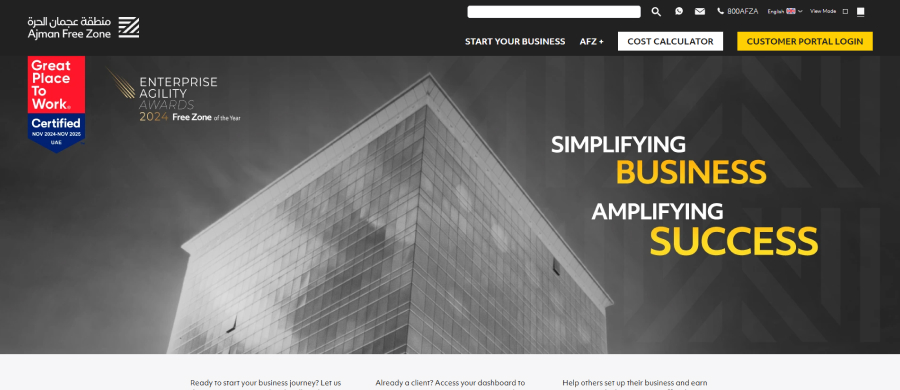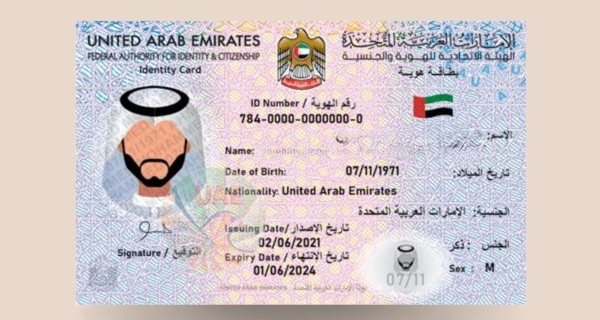When people talk about setting up in the UAE, the spotlight almost always lands on Dubai or Abu Dhabi. Big towers, glossy offices, heavy price tags. But if you’re just starting out, that can feel like overkill. Ajman Free Zone sits quietly on the side, and that’s exactly why so many small businesses end up there.
It’s been running since the late ’80s, so it’s not some new experiment. Over time, it has earned a reputation for being one of the easiest and cheapest ways to get a UAE company license. You don’t get the glitter, but you do get clear pricing and a process that doesn’t make you lose weeks chasing documents.
The location helps too. It’s right by Ajman Port, which is handy if you’re in trading. But even if you’re not moving containers around, the zone is still popular with freelancers, consultants, and online businesses that just need a clean setup.
The big pull is flexibility. Start with the smallest package if you want, and expand later with more space, which also lets you add visas when you need them. Ajman Free Zone doesn’t force you into anything oversized — and for many founders, that’s the real value.

Why Choose Ajman Free Zone for Business Setup?
Ajman doesn’t shout the loudest among the UAE’s emirates, but that’s part of its appeal. For entrepreneurs who care more about keeping costs down and processes simple, it’s a practical choice. You won’t find luxury towers or huge international banks here, but you will find a free zone that gets companies licensed fast and without the price shock.
If you’re a freelancer tired of inflated packages, or a small trading firm that just needs a warehouse near a port, Ajman Free Zone makes a lot of sense. The fees are competitive, renewals are straightforward, and remote setup is possible. For many founders, that combination beats the prestige of bigger zones.
About Ajman Free Zone
Ajman Free Zone was established in 1988, which makes it one of the UAE’s more seasoned zones. Being tied closely to Ajman Port has always been part of its identity — originally, it was geared toward traders and import-export businesses. Over the years, it has expanded to attract service providers, consultants, digital entrepreneurs, and even light manufacturers.
The government of Ajman backs the free zone, which gives it credibility and stability. While Dubai free zones sometimes feel overwhelming with their endless sub-zones and authorities, Ajman has kept things simpler. The infrastructure isn’t flashy, but you get the essentials: office spaces, warehouses, land plots for factories, and shared workstations for startups.
Location is another asset. Ajman is only about 30 minutes from Dubai and Sharjah, so you can reach airports and ports quickly, without paying the overhead costs of actually setting up in those cities. For logistics companies, that balance is valuable: proximity to major transport hubs at a fraction of the price.
Business Activities Allowed in Ajman Free Zone
AFZ is broad in scope. You’re not locked into one sector — it’s open to a wide variety of business activities.
- Trading and import/export. This is the zone’s traditional strength, thanks to its link with Ajman Port. You can license general trading, commercial trading, and specialized categories depending on your goods.
- Services and consultancy. Freelancers, consultants, IT firms, designers, and marketing agencies often use AFZ because packages are affordable, and you don’t need a large office to qualify.
- Industrial and manufacturing. Ajman Free Zone offers industrial licenses and plots for light and medium manufacturing. This flexibility is important because not every UAE free zone allows both office-based and industrial operations under one umbrella.
- E-commerce. Online stores and digital platforms are a growing slice of AFZ’s license base. You can run an online shop legally and use the zone’s address as your UAE base.
- Freelance permits. Ajman was one of the early movers in offering freelancer permits, making it easier for individuals to operate under their own name without forming a big company.
Of course, some activities require external approvals. Anything involving education, healthcare, or financial services will need sign-off from the relevant UAE authorities. But for most low-risk activities, the licensing process is fast and relatively painless.
One of the underrated advantages is the ability to scale. Many entrepreneurs start with a small package — maybe just a flexi-desk and no visas — and expand later when business grows. AFZ lets you add activities, increase your visa quota, or move into a bigger office without tearing down your original company. That flexibility explains why so many SMEs stay loyal to Ajman after they start.
Step-by-Step Ajman Free Zone Company Formation and Registration
Ajman Free Zone keeps the setup process pretty lean compared to some of the bigger players. You don’t have to jump through endless hoops, but it still helps to know the options, the paperwork, and how long it usually takes.
Company Forms Available in AFZ
Like most UAE free zones, Ajman offers a few different structures:
- Free Zone Establishment (FZE): a single-shareholder company. Ideal for freelancers or solo founders who want full control.
- Free Zone Company (FZC): two to fifty shareholders. This is the go-to for small partnerships, family businesses, or startups with co-founders.
- Branch Office: if you already run a company abroad or onshore in the UAE, you can open a branch in Ajman to carry out the same activities under the parent’s name.
The choice is practical: one person → FZE, multiple partners → FZC, existing business → Branch. Nothing complicated.
Required Documents and Timeline
The documents fall into two buckets: your personal details and the company’s official paperwork.
Personal documents:
- Passport copy (valid for at least six months).
- Passport-size photo.
- Proof of address (utility bill or bank statement).
- UAE entry permit or residence visa copy, if you already have one.
Company documents:
- Completed application form (from AFZ).
- Memorandum and Articles of Association (MoA/AoA).
- Shareholder resolution confirming the setup.
- Specimen signature of the company’s authorized signatory.
- For branches: certificate of incorporation, trade license, and a board resolution from the parent company.
In practice, most consultants will prepare these for you once they have your passport and a signed form. That’s why setup feels quicker here than in Dubai’s larger zones.
Timeline:For a straightforward license, AFZ can issue documents in as little as three to five working days. Add visas or regulated activities, and it can stretch to a week or slightly more. Renewals are even faster because you don’t need to resubmit the company documents every year — just the essentials.

Want to learn more about UAE business setup services?
Remote Registration Option
You don’t need to fly to Ajman to get started. AFZ allows full remote registration. The steps usually look like this:
- Send scanned copies of your documents.
- Pay the license fees online.
- Complete a quick identity verification, often via a short video call.
- Receive your license and incorporation documents by email. Hard copies can be couriered if you need them.
That’s it. The only time you need to show up in person is if you’re applying for visas. Medical tests and Emirates ID registration still require you to be physically present in the UAE.

For international entrepreneurs, this remote setup is a major win. You can launch a UAE company while sitting in London, Mumbai, or Lagos, and only fly in later if visas are necessary. Many digital businesses do exactly that — they keep their setup lean, run operations abroad, and then upgrade their Ajman presence once revenue grows.
Types of Licenses and Costs in Ajman Free Zone
Ajman Free Zone doesn’t overcomplicate licensing. You pick the activity you need, decide how many visas (if any) you want to attach, and then choose whether you’ll add office space, warehouse, or land. That’s it.
License Categories
Ajman Free Zone keeps things straightforward with three main license types:
- Business License – covers commercial trading, general trading, e-commerce, and most service and consultancy activities.
- Industrial License – for light and medium manufacturing, assembly, and related industrial operations.
- Sole Professional License – for individuals who want to operate as a single-owner professional service provider under their own name.
Costs depend on the license type, number of shareholders, and the facility you choose — from a flexi-desk to a private office or warehouse. This structure makes it easy to start small and upgrade later as your business grows.
Registration Packages and Pricing in Ajman Free Zone
After choosing your license type, the next step is selecting a registration package that includes the right workspace for your needs. AFZ keeps this process straightforward and transparent.
At the entry level, there are no-office or shared flexi-desk packages for startups, freelancers, and online businesses that don’t require a full office. These are among the most cost-effective options in the UAE, with annual fees starting around AED 5,000–6,000.
For companies that need a physical presence, AFZ offers dedicated offices, warehouses, and land plots. Costs scale with the size and type of facility. A larger space also allows for a higher visa quota, since visa eligibility is linked to the chosen package rather than sold as a fixed “per-visa” deal.
Visa quotas are confirmed on a case-by-case basis once your license and workspace are finalized. This approach lets you add staff visas later without having to cancel or restart your license — a flexibility many SMEs rely on.
Renewal fees typically remain close to the initial license cost, which makes long-term budgeting predictable.
Ajman Free Zone Corporate Tax, VAT, and Duties
The UAE has always been attractive for its light tax system, and Ajman Free Zone is no exception. But since 2023, the rules have shifted a bit with the new corporate tax law, so it’s worth breaking down how things really work.
Corporate TaxThe UAE introduced a federal corporate tax of 9% on profits above AED 375,000 starting June 2023. Free zones like Ajman can still enjoy a 0% corporate tax rate if they meet the requirements for being a “Qualifying Free Zone Person.” That means:
- The company carries out approved activities.
- It keeps real operations in the free zone (not just a paper setup).
- It doesn’t earn the majority of its income directly from mainland UAE clients.
If you meet those conditions, your AFZ company’s profits are tax-free. But if you sell directly into the UAE mainland without using a local distributor, that income may fall under the 9% tax.
VAT (Value Added Tax)VAT in the UAE is a flat 5%. Any company with annual revenues above AED 375,000 must register for VAT. Even if you’re below the threshold, you can register voluntarily to reclaim VAT on expenses like rent or supplies. Most international trades and free zone-to-free zone transactions are zero-rated, which helps keep VAT bills light for many Ajman companies.
Customs DutiesGoods imported into Ajman Free Zone are duty-free as long as they stay within the zone or are re-exported abroad. Once you move them into the UAE mainland, the standard 5% customs duty applies. That’s why many trading firms use Ajman Free Zone as a base for regional distribution.
ComplianceLow taxes don’t mean zero paperwork. AFZ companies are still required to keep proper accounting records, prepare financial statements, and, in some cases, file annual audits. On top of that, all companies in the UAE must follow anti–money laundering rules if they handle relevant transactions. Skipping this side of the setup can lead to fines far bigger than the taxes themselves.
Ajman Free Zone Company Formation: Who Should (and Shouldn’t) Choose This Free Zone?
Ajman Free Zone works really well for some people, and not so much for others. The trick is knowing which side you fall on before you start sending documents.
Who it fits:
- Freelancers and consultants. If you’re on your own and need a legal base, AFZ’s small no-visa and one-visa packages are some of the cheapest in the country.
- Traders. Being right next to Ajman Port makes life easier if you’re importing or re-exporting. Costs are lower than in Dubai, but you’re still within reach of Dubai and Sharjah airports and ports.
- E-commerce and online businesses. AFZ has an actual e-commerce license, so you can run an online shop or digital platform without bending the rules.
- Small manufacturers. Unlike some zones that only rent offices, Ajman leases warehouses and even land plots. If you need space for production or storage, this is a solid option.
Who it doesn’t suit as much:
- Highly regulated industries. Finance, healthcare, and education all need external approvals. It’s smoother to go into zones that specialize in those fields.
- Big-name corporate HQs. If you want a flashy office to impress investors, Ajman won’t deliver that. The infrastructure is functional, not glamorous.
- Mainland-focused businesses. If your entire model depends on selling directly to UAE residents or retail shops, you’ll be better off with an onshore license or a zone built for heavy local trade.
- Restricted passports and high-risk activities. Like every UAE free zone, AFZ follows federal rules on nationalities and business categories. Some simply won’t be approved here.
In short, Ajman Free Zone is a strong match for cost-sensitive startups, SMEs, freelancers, and traders who value location and flexibility. If your priority is prestige, or you’re in a sector that’s tightly controlled, you’ll likely be happier in another zone.

Conclusion
Ajman Free Zone isn’t trying to compete with Dubai’s skyscrapers or Abu Dhabi’s financial hubs. It plays a different game: keep costs low, make setup fast, and give small businesses room to grow. That’s why so many freelancers, SMEs, and trading companies quietly choose it over the bigger, flashier zones.
If you’re starting out and don’t want to sink half your budget into rent or endless paperwork, AFZ makes sense. You can begin small — a no-visa license or a flexi-desk — and scale later when things pick up. The port location helps traders, the e-commerce license helps online businesses, and the freelancer option keeps solo professionals legit.
Need help setting up in AFZ? Talk to our consultants — we’ll guide you through the process so you can focus on your business instead of the paperwork.
Yes. You can do the whole registration remotely — send your scanned documents, pay online, and finish ID checks over a video call. The only time you’ll need to fly in is if you apply for visas, because medical tests and an Emirates ID have to be done in person.
They do for some packages. Instead of paying the full license fee at once, you can split it into parts. Not every package qualifies, so it’s something to ask about before you commit.
Definitely, the free zone was built around Ajman Port, so import–export and re-export businesses are a big part of its base. You can trade abroad without paying UAE customs duties, as long as goods don’t enter the mainland.
Sectors like education, healthcare, and finance always need sign-off from federal regulators, no matter which free zone you choose. Regular consulting, trading, or online business activities usually go through without extra approvals.
